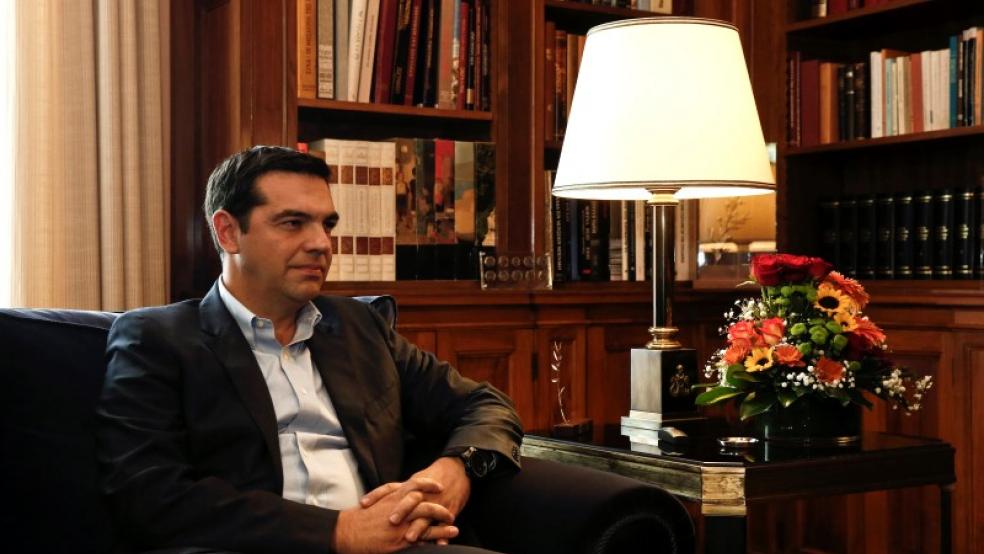The government on Monday brought forward a vote in parliament to elect a president to this month. Its aim was to end political uncertainty that has hung over the country, but it risks having to call snap elections if the government's candidate does not get enough votes.
Tsipras's Syriza party, which wants to tear up Greece's EU/IMF bailout deal, is likely to win an election, polls show, and Samaras warned on Thursday that the country risked a "catastrophic" return to the depths of its debt crisis if his government fell. "A frenzy of fear-mongering with the responsibility of the Prime Minister himself is a final spasm before the end," Tsipras said in a speech on the Greek island of Crete. "The countdown for the ruling coalition and its catastrophic policies has already started".Syriza is promising to abandon any cooperation with Greece's EU/IMF lenders and reverse austerity cuts -- spooking financial markets wary of Greece going off the path of fiscal rigor just as it puts its finances on track and returns to economic growth.The European Union's chief executive, in an unusual move, on Thursday gave Greeks a stark warning of major problems if they vote the "wrong" way and Syriza wins an early parliamentary election.But Tsipras called the warning a "tale of fiction" and said Greece's EU partners would change their stance once a strong Syriza government took office.Syriza's lead over the ruling conservatives narrowed after the government brought forward the vote, according to an Alco poll published on Saturday. Conducted on Dec. 9-12, it showed Syriza would win with 27.6 percent of the vote if parliamentary elections were held now. Samaras's New Democracy party would get 24 percent.Samaras controls 155 deputies in the 300-seat parliament. He is counting on two small opposition parties, including a former coalition partner, and independent lawmakers to survive the vote.In an article published on a Greek newspaper, Samaras called on lawmakers to support his nominee, saying it was their "national duty" to elect a president. Before a two-day visit to Athens starting on Monday, EU Economic Affairs Commissioner Pierre Moscovici said Europe would continue supporting Greece as long as the country stuck on its reform path."Things have changed in Greece but there are still enough to be done for the reconstruction and confidence as far as the country's finances are concerned," he told weekly Proto Thema newspaper. (Reporting by Angeliki Koutantou; Editing by Susan Fenton, Larry King)Greek opposition leader accuses government of fear-mongering

YORGOS KARAHALIS



